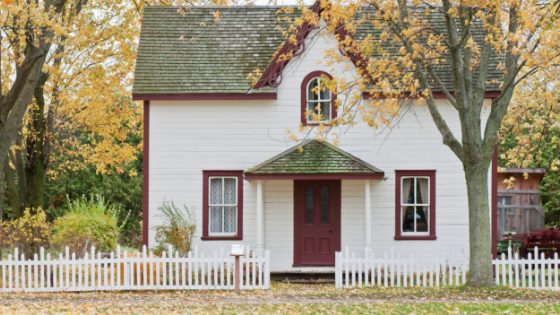It’s a difficult question to answer. It’s like asking someone whether they want to cut their arm or leg off. You can’t live with it and you can’t live without it either. Same goes with rent-to-own a house. When you rent-to-own a house you get to live in your favorite home right away but with certain conditions. These conditions are tough to handle if you don’t read the fine print. For first time homeowners, rent-to-own agreements seem like heaven-sent when in fact, they’re the reversed. To save you from getting into trouble, we’ve compiled this guide to help you understand the process. After that it’s up to you whether you go for rent-to-own a house or not.
How Does Rent-to-Own Work?
Rent-to-own involves signing a lease agreement between the seller and buyer that allows the buyer to pay a small monthly amount towards buying a house. The agreement can be a lease purchase or a lease option.
A lease option means the monthly amount will act as an installment for down payment. It gives the buyer the option to purchase the property at the end of the lease, or walk away without buying it.
A lease purchase on the other hand means the monthly amount becomes the down payment, and at the end of the lease, the buyer has to purchase the property. There is no option of backing out in a lease purchase.
Why opt for rent-to-own
Usually first time home buyers are skeptical about their financial situation. Sometimes they have other debts to clear which reflect poorly on their credit score. In such a situation, rent-to-own makes sense as it allows the buyer to fix their financial situation and at the same time get to live in their home, which they hope to own in the future.
Why NOT to opt for rent-to-own
Rent-to-own however can be costly because you’ll have to pay above the “rent” amount each month to work towards a down payment for the house. For example if you’re supposed to pay $1000 rent according to market rate, then you’ll have to pay $1200 per month lease amount with $200 crediting towards down payment.
Also, a rent-to-own agreement works differently than a rent agreement. As a potential owner you have to pay for maintenance and repairs instead of the landlord. The landlord on the other hand will have to bear the cost of insurance, taxes and housing fees.
Should you or shouldn’t rent-to-own a house
It all depends on your financial situation. At the end of the lease agreement if you have enough money to apply for a mortgage, assuming your credit score has improved, then you should go for it. If you have entered into a lease purchase, then at the end of the term, you don’t have a choice but to buy it, regardless of your financial situation.
On the other hand, if at the end of the lease agreement you feel you don’t like the house anymore then you can move on, provided you entered into a lease option agreement.
You might be wondering why bother with rent-to-own when you could have easily rented a place without the hassle. That’s where the charm is actually. Rent-to-own lets you settle with the seller to buy the house at the prevailing price set at the time of signing of the agreement. Let’s say 10 years from that time, your house appreciates to drastically (like the housing market is currently) then you can still afford to buy a house in Burbank at the previous rate. You actually save a bomb just because you have a lease option agreement. Sounds neat, isn’t it? That’s why many first time homeowners like to go for the rent-to-own option.









